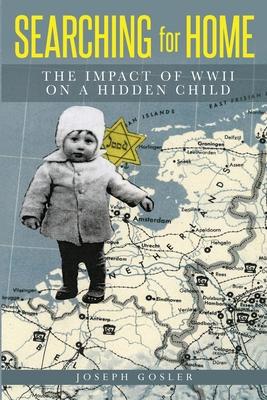The war ends and Josje is returned to his parents. "Who are these people who call themselves my parents," he imagines. He is three years old and feels abandoned, confused and angry. He wants to return to his "real" parents who loved and sheltered him during the war. "My name is Pietje Dijkstra not Josje Gosler!" he states tearfully when goaded by his cousin.
As a Jew and a Hidden Child, his innocence protected him as much as his Christian family. At seven months of age, for his own safety as well as his parents', he was given to a young nursing student from the Dutch resistance, and placed with the Dijkstra family in Wageningen.
The impact of his first separation from his parents, may not be so easily ascertained, but when he is returned to them, his porcelain psyche is damaged and his closest companions are fear and distrust.
Childhood wounds never fully heal and the impact of his early life is seen through the lens of an immigrant, as he migrates with his family to Israel and subsequently to the United States.
This is a personal memoir of a child survivor that spans from WWII to the late 20th century. A story of a young boy, who becomes a man, ever wandering and struggling to find himself. His parents, emotionally gutted from their own wartime experiences, are barely able to care for themselves, let alone this young stranger.
